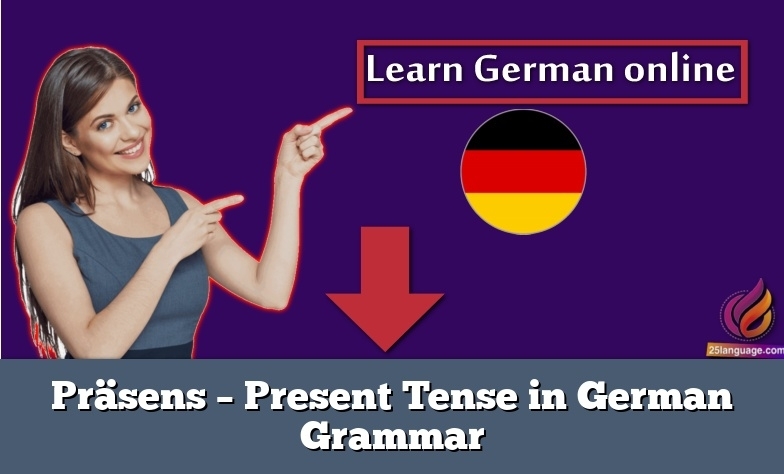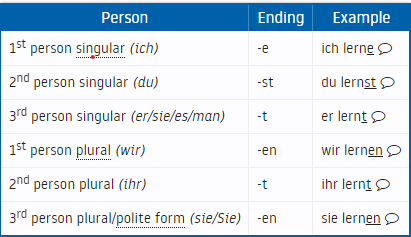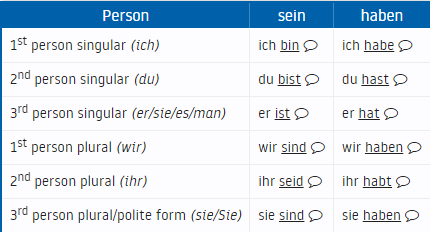Präsens – Present Tense in German Grammar
Conjugation of German Verbs in Present Tense

The present tense in German also called the simple present (Präsens) is used to talk about the present and future in German. We can translate it into one of three English tenses: the simple present, present progressive and future with will or going to. It is the most commonly used tense in the German language.
Learn the grammar rules, how to conjugate verbs and when to use the present tense with Learn German online.
Present Tense in German Grammar
The simple present (Präsens) is used to talk about the present and future in German. We can translate it into one of three English tenses: the simple present, present progressive and future with will or going to. It is the most commonly used tense in the German language.
Example

Usage
We use the German present tense to express:
- a fact or condition in the present
Example: Das ist Felix.
- an action that takes place in the present once, repeatedly, or never
Example: Jeden Dienstag geht er zum Fußballtraining.
- a action that expresses how long something has been going on
Example: Er spielt schon seit fünf Jahren Fußball.
- a future action that is already planned or agreed upon
Example: Nächsten Sonntag hat seine Mannschaft ein wichtiges Spiel.
Conjugation of German Verbs in Present Tense
To conjugate verbs in the German present tense, we remove the infinitive ending -en and add the following endings:

The verbs sein and haben are irregular:

Exceptions
- If the word stem ends in d/t, we add an e before the endings -st and -t.
Example: warten – du wartest, er wartet, ihr wartet
This doesn’t happen when the vowel changes. (In this case the t in the 3rd person singular ending also disappears)
Example: laden – du lädst, er lädt, ihr ladet (vowel change a to ä) halten – du hältst, er hält, ihr haltet
- If the word stem ends in s/ß/x/z, we remove the s in the 2nd person singular ending.
Example: tanzen – du tanzt (not: tanzst)
- If the word stem ends in ie, we remove the e in the ending
Example: knien – ich knie, wir knien, sie knien (not: kniee, knieen)
- The word stem changes in some strong verbs.
Example: lesen – ich lese, du liest, er liest, wir lesen, ihr lest, sie lesen
- If the infinitive ends in -eln/-ern, we remove the e in the ending.
Example: wandern – ich wandere, wir wandern, sie wandern
In the case of -eln, we can also leave off the e from the word stem in the 1st person singular.
Example: lächeln – ich läch(e)le, wir lächeln, sie lächeln
Finally you can improve your German with Learning German App. Then you can practise according to your level. we hope that you ‘ve got the present tense in German Grammar.





























